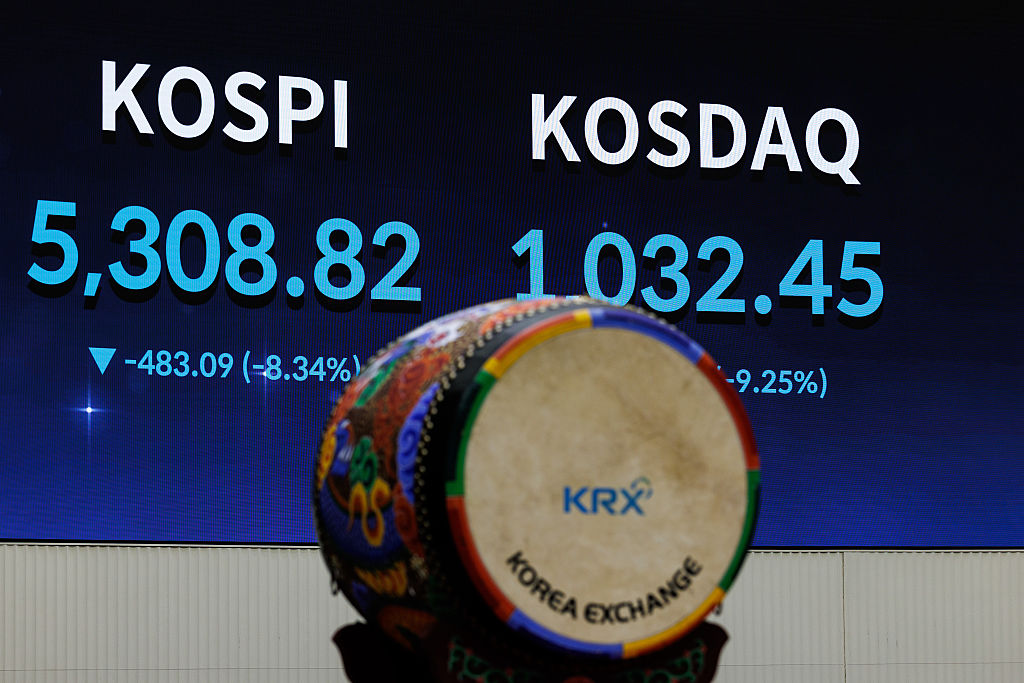Equity market strategists finally begin to know that they don’t know
You know something is up when the ultra-bulls and the extreme-bears start to agree. How is a contrarian supposed to feel?

Get the latest financial news, insights and expert analysis from our award-winning MoneyWeek team, to help you understand what really matters when it comes to your finances.
You are now subscribed
Your newsletter sign-up was successful
Want to add more newsletters?
One of the many things that the investment world is bad at is admitting what it doesn't know. Take the Great Depression. What caused it? Socit Gnrale's Dylan Grice has a list of possibilities. It might have been the stock market crash of 1929. Or perhaps it was something to do with there not being enough liquidity in the economy (5,000 banks failed in the US in 1932).
Or maybe it wasn't about the fall in liquidity after the crash. Maybe it was about the fact that there was too much liquidity before the crash: there was a huge run up in lending in the late part of the 1920s, so there had to be a round of deleveraging at some point.
Or if it wasn't that, maybe it was the collapse in world trade, the total value of which utterly collapsed between 1929 and 1933 (from $5.3bn to $1.8bn).
Try 6 free issues of MoneyWeek today
Get unparalleled financial insight, analysis and expert opinion you can profit from.

Sign up to Money Morning
Don't miss the latest investment and personal finances news, market analysis, plus money-saving tips with our free twice-daily newsletter
Don't miss the latest investment and personal finances news, market analysis, plus money-saving tips with our free twice-daily newsletter
This isn't, I'm afraid, a rhetorical question. The answer isn't set in stone and you could, if you could be bothered, find a room full of economists to argue any one of the four.
The truth, as Grice says, remains something of a mystery: we might know what happened but we don't know the causal relationships between all the factors. The same goes for the decline of Rome. Was it something to do with religion (Christianity brought too much patience and not enough passion)?
Was it internal strife too many generals fighting to be emperor? Was it the fiscal crisis? Or was it some crazy mixture of the lot? Here'sa link (thanks again to Grice) that pretty much sums up every possibility. The same is also true of most other tricky global crises. No one really knows how things (and economic things in particular) happen. They just do.
Sadly looking into the future is even harder than looking into the past. With this we get to know all the factors and try and figure out which ones are important and which are not. Then we have to figure out what that important one will make happen. Most forecasters and equity market forecasters in particular have usually made a good stab of pretending they can do this.
But these days, I'm sensing a little humility creeping into the market. Why? Everyone is copping out and suggesting we flee to the same safe havens: shares in companies with strong balance sheets and generous and growing dividends. We've been suggesting these in MoneyWeek for ages and I wrote about the momentum behind them here last year (calling them the New Nifty Fifty or NNF) and last week.
But as John Authers points out in the FT, the consensus is now getting weird. The strategists at Soc Gen and the strategists at Goldman's are usually at loggerheads, the former being deeply bearish and the latter often appearing to live in some kind of crazy happy land where big banks make sense andequities always go up.
But this year they're both suggesting deep-value high-yielders. The strategy might well have some legs still in it, and at least holding these kinds of stock limits your downside in a bad year. But, like all things on which everyone agrees, it can make a contrarian feel really very nervous. Perhaps it is time to start buying financials?
Get the latest financial news, insights and expert analysis from our award-winning MoneyWeek team, to help you understand what really matters when it comes to your finances.

-
 One million more pensioners set to pay income tax in 2031 – how to lower your bill
One million more pensioners set to pay income tax in 2031 – how to lower your billHundreds of thousands of pensioners will be dragged into paying income tax due to an ongoing freeze to tax bands, forecasts suggest
-
 Stock market circuit breaker: Why did Korean shares pause trading?
Stock market circuit breaker: Why did Korean shares pause trading?The fallout from the conflict in the Middle East hit the Korean stock market on 4 March, with shares forced to temporarily stop trading. What is a stock market circuit breaker, and why did the KOSPI trigger one?
-
 House prices to crash? Your house may still be making you money, but not for much longer
House prices to crash? Your house may still be making you money, but not for much longerOpinion If you’re relying on your property to fund your pension, you may have to think again. But, says Merryn Somerset Webb, if house prices start to fall there may be a silver lining.
-
 Prepare your portfolio for recession
Prepare your portfolio for recessionOpinion A recession is looking increasingly likely. Add in a bear market and soaring inflation, and things are going to get very complicated for investors, says Merryn Somerset Webb.
-
 Investing for income? Here are six investment trusts to buy now
Investing for income? Here are six investment trusts to buy nowOpinion For many savers and investors, income is getting hard to find. But it's not impossible to find, says Merryn Somerset Webb. Here, she picks six investment trusts that are currently yielding more than 4%.
-
 Stories are great – but investors should stick to reality
Stories are great – but investors should stick to realityOpinion Everybody loves a story – and investors are no exception. But it’s easy to get carried away, says Merryn Somerset Webb, and forget the underlying truth of the market.
-
 Everything is collapsing at once – here’s what to do about it
Everything is collapsing at once – here’s what to do about itOpinion Equity and bond markets are crashing, while inflation destroys the value of cash. Merryn Somerset Webb looks at where investors can turn to protect their wealth.
-
 ESG investing could end up being a classic mistake
ESG investing could end up being a classic mistakeOpinion ESG investing has been embraced with enormous speed and zeal. But think long and hard before buying in, says Merryn Somerset Webb.
-
 UK house prices will fall – but not for a few years
UK house prices will fall – but not for a few yearsOpinion UK house prices look out of reach for many. But the truth is that British property is surprisingly affordable, says Merryn Somerset Webb. Prices will fall at some point – but not yet.
-
 This isn’t the stagflationary 1970s – but neither is it the low-rate world of the 2010s
This isn’t the stagflationary 1970s – but neither is it the low-rate world of the 2010sOpinion With soaring energy prices and high inflation, it might seem like we’re on a fast track back to the 1970s. We’re not, says Merryn Somerset Webb. But we’re not going back to the 2010s either.